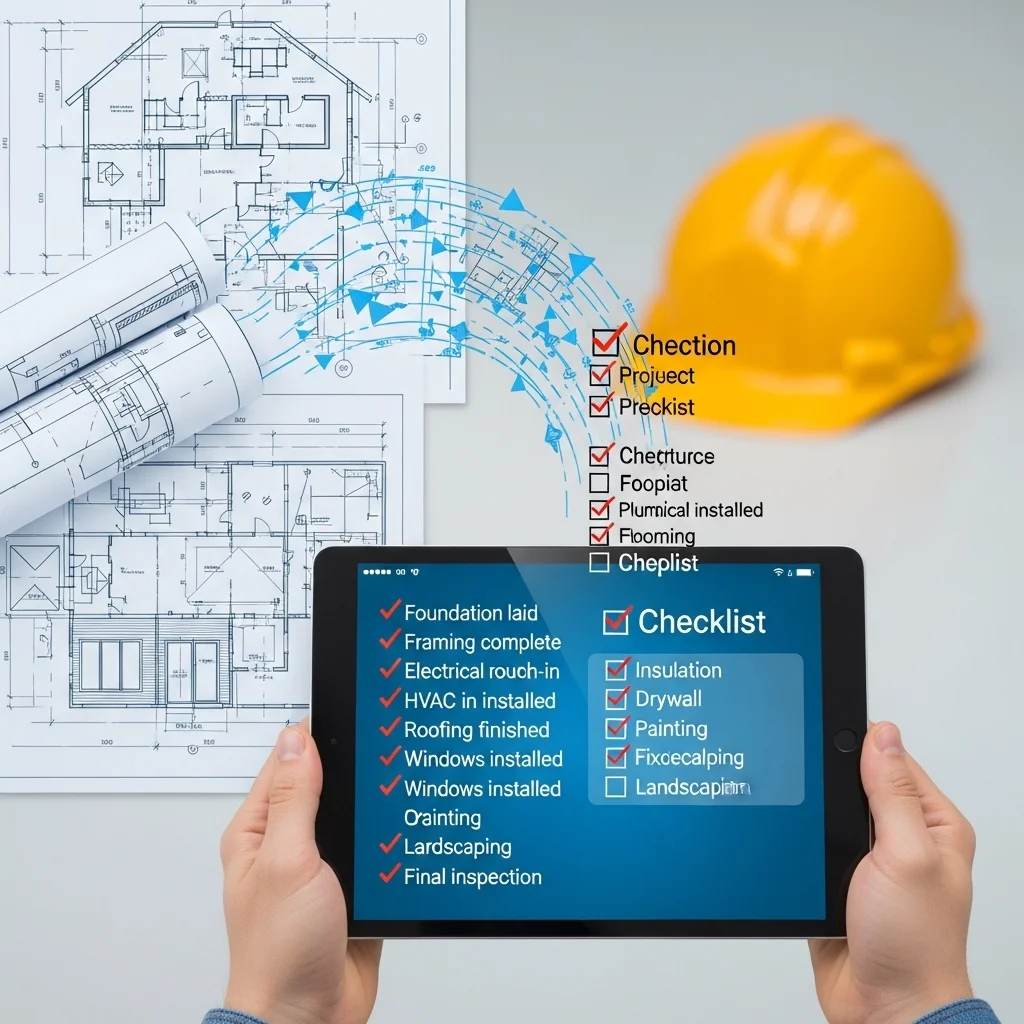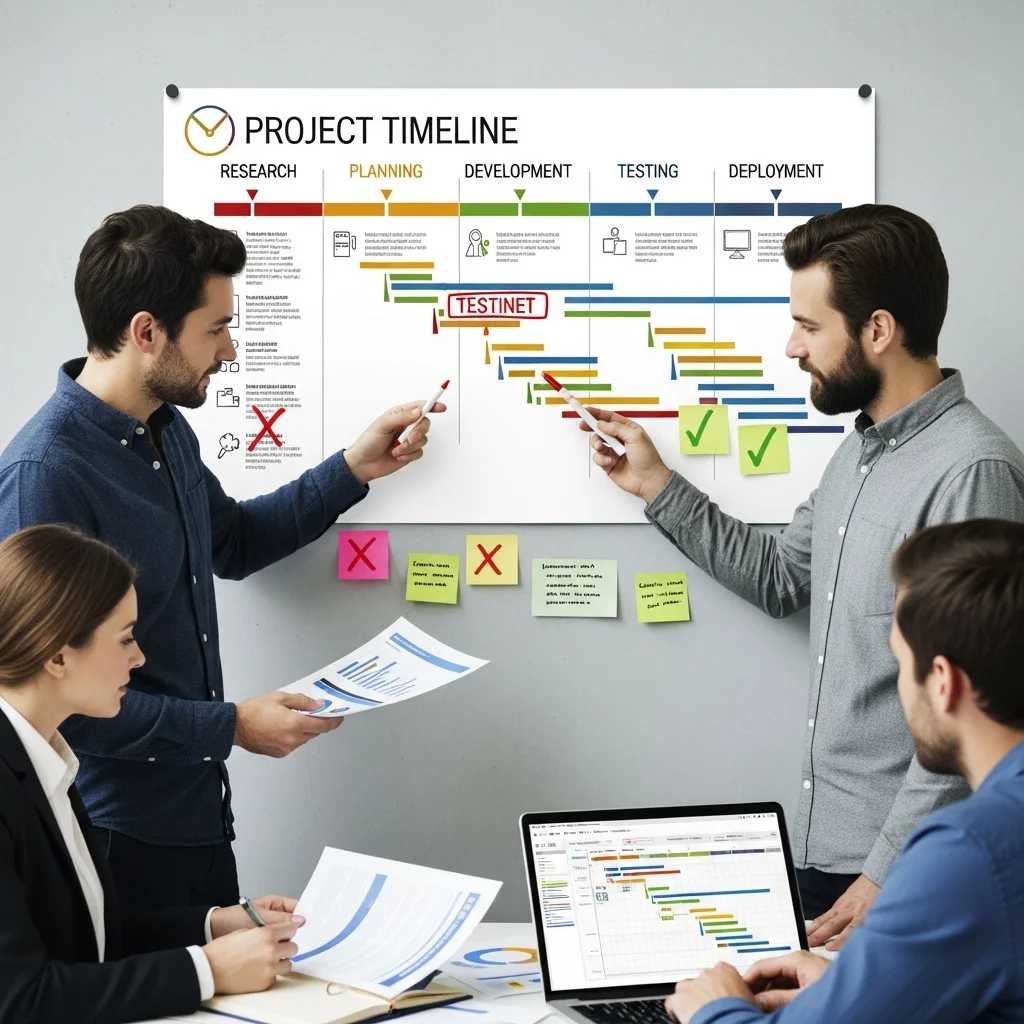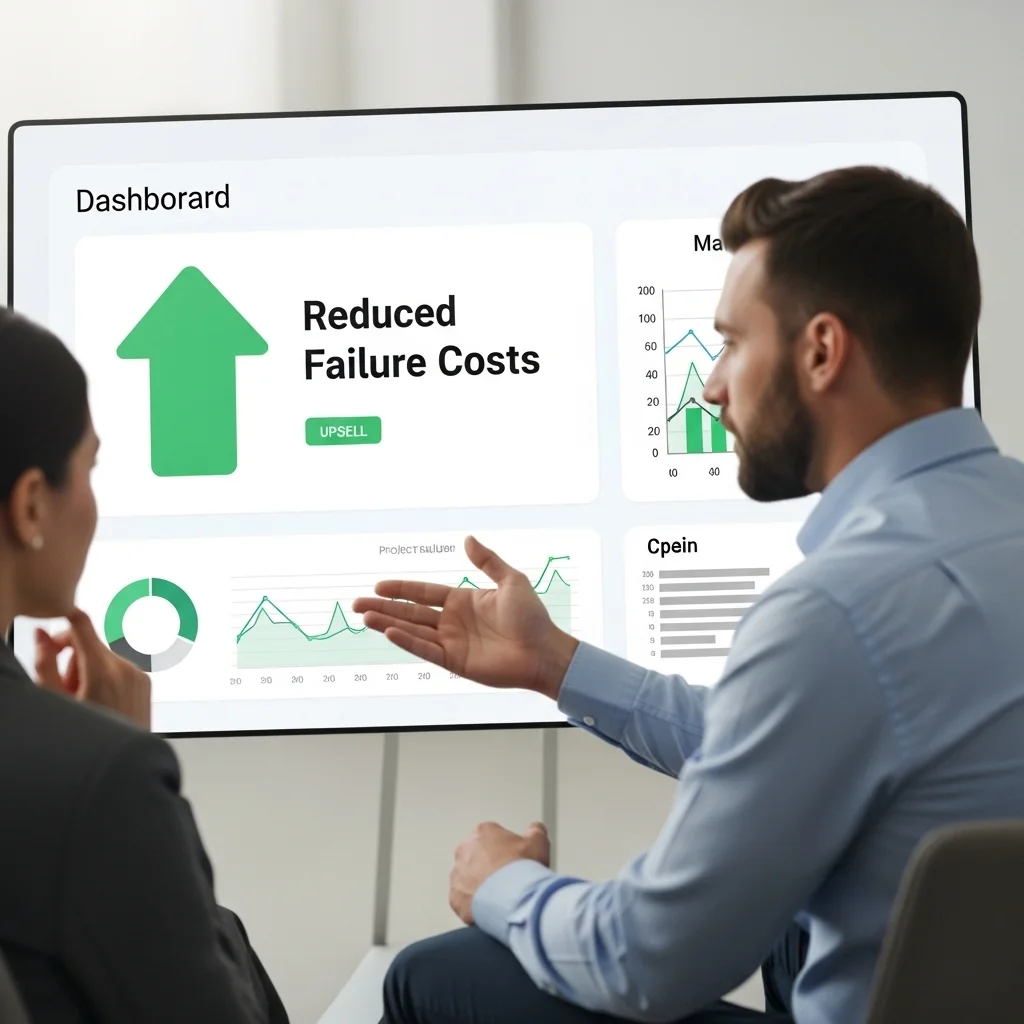You build trust together
Without solid relationships, even the tightest deal collapses
Automate
Save time through CRM integrations, automatic follow-ups and smart price calculators. Those minutes add up to hours.
Integrate
Link project planning, procurement and invoicing so everyone works with the same figures, even in the site cabin.
Innovate
Experiment with digital twins, data dashboards and remote site visits to show clients something they did not expect yet.
Connect
Make the leap from supplier to sparring partner by sharing knowledge events, toolkits and sector benchmarks.
A kind of mini-construction.
What you can apply today

Without a construction account manager, conversations often stall at short price discussions. With a relationship manager who converts client feedback into improved products, a long-term partnership emerges that benefits everyone.
What you can apply today
Start with one specific client challenge, for example reducing failure costs. Link a concrete recommendation to it, perhaps the use of precast walls. Show a calculation example and finish with a pilot. Small successes build momentum.
Is there still something to learn?
Absolutely. New tender formats, CO₂ reduction requirements and labour shortages introduce new rules every month. So keep moving.
Fewer meetings, more site visits
Combine structural engineering with data skills
Share figures transparently, even when they disappoint
Work with a buddy system between sales and operations
From listening to evaluation.
A step-by-step plan through which the construction account manager delivers real impact.

Step 1 – Listen.
A construction account manager does not start with a pitch but with sharp questions. What is the project lead time? Where is the biggest delay? By listening actively you create a picture of the real pain points, not just the price discussion.

Step 2 – Translate.
All collected input is translated into a proposal. Sometimes that is faster delivery, sometimes training in BIM software. Here the account manager shows added value because solutions are formulated as practical and measurable.

Step 3 – Validate and adjust.
After the presentation a reality check follows. Does the solution fit the planning cycle? Is budget allocated? By defining criteria together you avoid surprises (and conflict) later in the process.

Step 4 – Implement.
Now the hands-on mentality surfaces. The construction account manager organises material deliveries, schedules the toolbox meeting or ensures that the new software runs in the site cabin. Something will go wrong of course, but swift correction maintains trust.

Step 5 – Evaluate & upsell.
After completion it is time to measure: did failure costs really fall by 7 %? Thanks to data from project software you can make hard statements, which in turn accelerates the next deal. Sometimes there is room for a maintenance contract or an upgrade.
A critical look at the role

Pushing no longer sells; partnering does
In practice we often see account managers still focusing on short-term revenue. That works for a while, but plain selling reduces you to a price list on legs. In construction, where projects run for years, organisations want a partner who thinks along about logistics risks, nitrogen regulations and circular materials.
The pitfall of product fetishism
Continuing to talk about specifications while the client struggles with a deadline? Avoid that. A contractor buys the result, not the brochure.
Practical tips that work tomorrow

Start small, grow big
Aim for one quick win per client. Suggest digital signature for delivery notes, saving everyone time at the gate. Once that flows, tackle bigger themes together such as CO₂ reduction.
Measure what matters
Choose metrics the site understands: concrete pours without overrun, snag reduction, crane waiting hours. By sharing those numbers you remove resistance.
Looking ahead: the construction sector in 2030

Data-driven and people-centred
Digital twins, modular construction and AI-driven planning will become the standard according to McKinsey. Yet the construction account manager remains human; empathy and network remain indispensable.
New competencies
Think of basic knowledge of ESG reporting, configuration of IoT sensors on precast elements and an understanding of European subsidy flows.


Want to brainstorm about your client portfolio?
Complex construction challenges make us happy and we gladly join an open conversation. No standard pitch, rather a fresh perspective and concrete suggestions. Send a message and we will drop by with coffee and a pile of practical examples.
Frequently asked questions
Practical answers to the questions we hear most often.
What exactly does a construction account manager do? 🤔
A construction account manager maintains relationships, identifies new opportunities and guides clients in improving their construction processes. He or she aligns technical possibilities with commercial goals and remains involved throughout the project so that agreements are actually fulfilled.
Do you always need a construction degree? 🎓
Not necessarily. Many successful professionals have a commercial background that they complement with courses on building materials, BIM or safety. Sector knowledge does speed up your onboarding.
What does a construction account manager earn? 💰
Recent vacancy data show that fixed annual salaries range from around 59,000 to 73,000 euros, excluding bonuses of 10 – 20 %. The exact figure depends on region, experience and product portfolio.
How do you combine sales with sustainability requirements? 🌱
By integrating CO₂ savings or circularity directly into your value proposition. Think of advising on reusable formwork or concrete with less cement. Measurable environmental gains give commercial proposals extra weight.
Which tools help to serve clients better? 🛠️
CRM systems, project planning software and mobile inspection apps are most common. We notice that integrations between those tools are often missing, leaving major gains available in 2025.
How do you handle price pressure in tenders? 😬
Focus on total cost of ownership. Show with real-world data that less delay, lower failure costs and shorter lead times offset the initial investment. In fact, clients appreciate transparency more than rock-bottom prices.
Are there career progression opportunities? 🚀
Certainly. Market conversations reveal that account managers move towards key account, sales manager or even business unit director roles, especially when they have demonstrably improved projects.
What changes after stricter nitrogen regulations are introduced? 🌍
Projects are planned more carefully to shorten build time, and suppliers are increasingly asked to share CO₂ and NOx data per delivery. The construction account manager acts as the link to supply that data on time.
How much time do you spend on site? 🏗️
On average two to three days per week. Clients value it when you literally stand in the mud, because that is when you see problems arise and can intervene faster.
Is remote working an option in this role? 💻
Partly. Administration, quotations and team meetings work fine from home. Physical visits remain important for trust, especially at the start of a new project or during escalations.










.webp)
